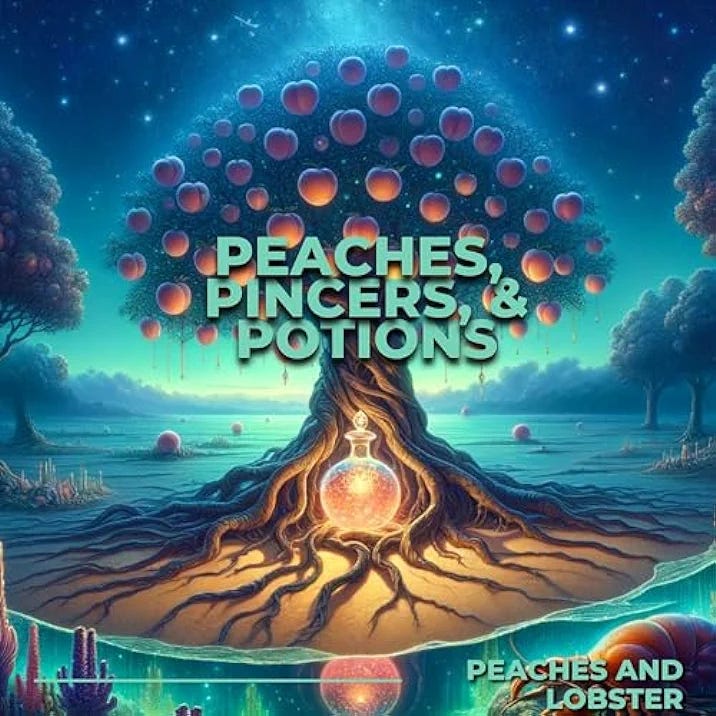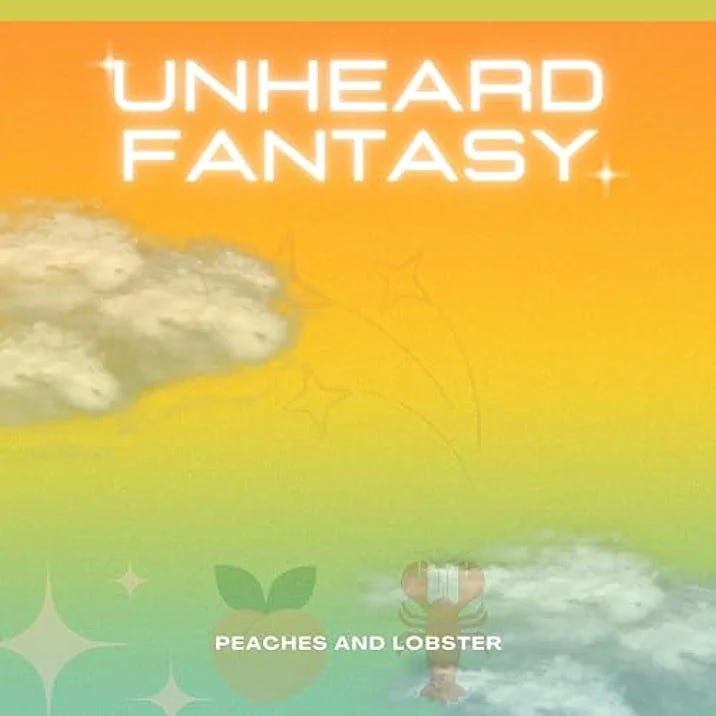Who are the mysterious Peaches and Lobster?
Discovering the unknown in the age of algorithmic search-bars


It is rare, but mostly an honor and pleasure, to encounter music that hasn't yet succumbed to the ethos of search engine optimization, algorithmic manipulation, blatant self-promotion, mere digital hyper-accessibility, influencer visibility, and ubiquitous availability.
It's the old “I-knew-them-before-they-were-hip” arch-hipsterism, only now given a specifically 21st spin, with a frisson of rebellious escapism added to the pretentious elitism, as if obscurity is in itself a value to be cherished outside the corrupt value system propagated through the all-seeing eye of late-stage capitalism.
Such is the strange case with Peaches and Lobster, of whom I appear to be the first subscriber on YouTube and about whom there is nothing to be found after multiple Google searches. I am more than happy to be enlightened if anyone with a tip regarding their identity.
Either a recluse entity or a carefully curated shadow presence, it remains to be seen whether this Garbo-like figure(s) are consciously avoiding publicity or perhaps even more consciously employing the aesthetics of disappearance to cultivate a purposefully mystical aura.
What cannot be disputed is the otherworldly music appearing in their name: queered soundtracks, pocket symphonies, intense melodrama, fearless theatricality, an avalanche of radically differentiated yet equally inventive moods, each and all bursting at the tight seams of pieces that are so short, their duration at most two minutes in total, that they seem more like genre suggestions, or previews of longer passages begging to be fully explored.
The brevity of individual tracks is in direct contrast with the expansive impressionism of each composition, their totality creating an ambitious melange of attenuated sentimentality, ambitious pomp, and wide-angled cinematographic intent.
One is tempted to call this music AI Pop since the layering of influences and multi-referential style could easily be thought of as parameters fed into music generation software.
The resulting sound of this process is an amalgam of billions of data points, their granular contributions sifted through an elegantly designed algorithm producing audible information, perhaps finalizing each piece when the sound accrues enough harmonic frequencies to qualify as listenable in mathematical terms of symphonic harmony and chord structure.
Unheard Fantasy was the debut LP by Peaches and Lobster, released in 2023.
It opens with a string fanfare as if consciously evoking the more romantic passages of a Bernard Hermann soundtrack, severe around the edges of its trembling core.
Touches of exotica-like peculiar percussion and plucked strings decorate an overall compositional reticence discernible throughout, while strong strings lead with melodic flourishes, their poignant chords eccentrically framed by carefully curated sonic surroundings.
The overall atmosphere, at least in genre terms, is an odd hybrid of exotica and folk, mostly acoustic and emotionally generous in its intention.
Peaches, Pincers, & Potions is the second Peaches & Lobster LP, released in 2024 and even shorter in duration, containing 8 tracks, each lasting up to one and a half minutes.
Could this be AI Pop? If so, it is generated by very sophisticated prompts, while their creator must be a person of considerable musical education, since the results are so layered, complicated, and audacious.
The record starts with an animated piano piece, whose playful assertiveness is reminiscent of a post-romantic Béla Bartók nocturne.
The early-modernist flair for counter-intuitive juxtapositions of textures and intentions runs as a musicological preoccupation throughout the entire album, simultaneously combining the emotional charge of strong compositions and the prickly oddness of angular arrangements and variegated time signatures.
The mannerist, halting drama of early 20th century composers like Skalkotas, Debussy, and Ravel swirls at the edges of string quartets, their ghosts succeeded by dreamy new age soundscapes, themselves sliding off towards the extraterrestrial folk of a koto and didgeridoo jamming duel.
At times purely synthetic yet always striving for some kind of analog verisimilitude, the sound is primarily electronic but not specifically technological regarding the overall atmosphere.
This is music applicable to a wide spectrum of cultural contexts – there are even passages that sound like barely disguised traditional, or even ethnic-sounding, tropes.
If this was created by AI, then whoever is prompting the algorithm is a composer to watch. If it is an old-school group of musicians playing original compositions, then we are listening to the first example of what is surely to be a widely recognized and major school of new, adventurous sounds.
Drifting off to the lullabies of benevolent machines watching over us, we are witnessing the uploading of human musical imagination to the solid-state system of silicon chips and cloud servers.
It's as if the machine is humanizing itself through spiritual osmosis for the benefit of our entertainment.
Questioning the very nature of music and critical appreciation, this is an entirely new form of life, if sound is a vital sign, necessitating a value system that applies to instances of radical singularity.
Text written by Panagiotis Chatzistefanou, Berlin, March 2024



